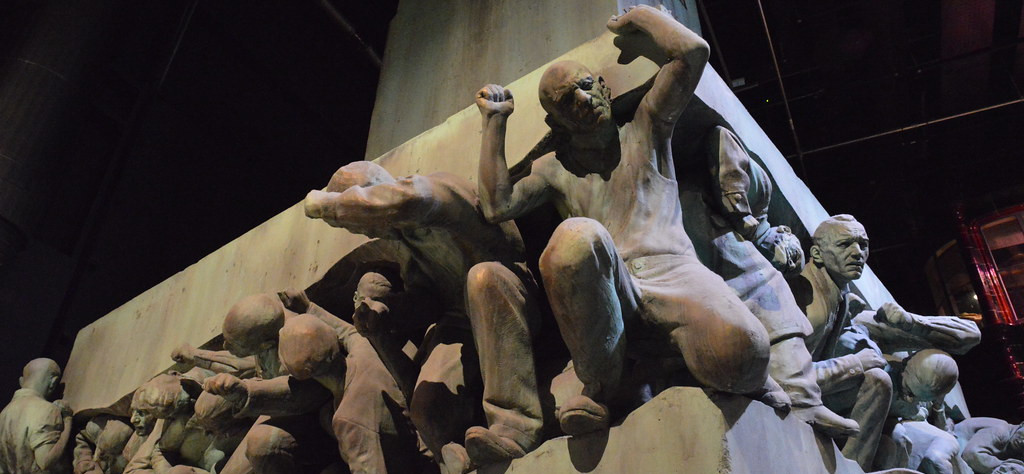Magic is Might is Right
What fantasy can teach us about international relations
5 March 2020
The majority of fantasy writing aims to parallel patterns in human behaviour. The Harry Potter series can offer some stark guidance on the state of international relations right now. We should not let authors off the hook in properly relating these stories.
Fantasy falls into the two categories. The first can be summarised as the feast for the imagination. Authors here write to awaken the reader's sense of the abstract, extravagently departing from human life to experience the unthinkable. Well-known entries include Douglas Adam's Hitchiker's Guide or the Valérian series. These archetypes describe species after species, each unique from their predecessor and departed from human life as can be. A strong feast for the imagination expands the universe of possibilities for its readers and primarily aims to promote wonder.
The second is considered social commentary writing. Encompassing the majority rest of fantasy literature, social commentary fantasy exists because the former cateogry necessitates an imagination gap between the writer and the reader, something that is hard to achieve. Instead, it is easier to write reflections on people. The fantasy setting aids this. Rather than being limited by the constraints of history or political culture, fantasy permits a focus on whatever character trait the author wishes to represent. Whenever a social commentary writer builds worlds, they invite readers to reflect on the values portrayed in the society, or on the represented culture, norms, or behaviour. The result is a satisfyingly charged commentary which authors can well control.
These two categories ought not be confused. Many critics vexatingly lambast the fantasy genre as unimaginative. Despite the non-human nature of its composing characters, decision-making in the latter category is recognisably human, frustrating those seeking story-telling of the escapist first category. Yet when an author's intention is to critique human behaviour, a human relatibility to a character's actions is paramount.
One such example of social commentary writing can be seen in Harry Potter, the popular set of children's novels about a wizarding society hidden from ordinary society. The primary cause of the civil war that envelops over the course of the books is an argument about the place of wizards in society - the Dark Side led by team Voldermort, believes that wizard's should rule over their muggle counterparts. Possessing unique and unsurmountable powers after all, wizards are seen as the natural subjugators to the non-magical populace, Dark Side advocates would have them claim that place. By contrast, the Light Side, best embodied in the protagonist Dumbledore and his associates, believe the place of wizards is to hide, guide muggles where necessary, and flourish aside from the rest of the society. Their efforts are concentrated in a strictly principled and research-based society, where magic is used to improve the world for those who inhabit it in an unselfish, utopian manner.
 Harry Potter's "Magic is Might" statue, constructed by 'Dark Side' government at the Ministry of Magic
Harry Potter's "Magic is Might" statue, constructed by 'Dark Side' government at the Ministry of Magic
This ideological conflict is recognisable as a debate over power. When two forces separated by a social cleavage are unbalanced by a considerable force, here understood as military, a long-standing question over the outcome of that relation is raised. Should the strong conquer the weak? Or should perhaps the enlighted lead the ignorant to greater understanding and prosperity? The discussion is in fact a central topic of international relations theory, where the two competing parties might correspond to rival nations. The abiding perspective, known as realism suggests the former course of action, roughly correlating to the Dark Side philosophy in the books. In a realist interpretation, those with power conquer those without. In international relations, this is painted as a conflict over security. It is the primary goal of any nation to guarantee to their own security, firstly by the elimination of any existential threats, secondly by the maintenance of any land, persons, or resource within their scope, and thirdly by never-ending competition with any competitors. This last condition arises through a consideration of relative strength. For any two nations, the weaker has an obvious incentive to improve themselves to match their rival, for fear that their rival might oppose and eliminate that at any given moment; the stronger has an incentive to widen the gap between their relative strengths by as much as possible ad infinitum, so that any challenge that does arrive from their lesser counterpart is reduced to insignificance. In the characterisation offered by Rowling's books, the Dark Side might offer the belief that the Wizarding community should subjugate the non-magical, since if the muggles should discover and turn on them, despite their military inferiority, they might still pose a valid threat, one would suppose through a greater access to manpower, conventional weapons, nuclear weapons, and so on. In turn, it is implied that the muggles have much to fear should they discover the magical society since the wizards could wipe them out any time of their choosing, should they so desire. Thus, a true realist interpretation is offered.
By contrast, the Light Side embody an interpretation of liberalism, also known as internationalism or idealism though the historical motivations behind those terminology differ in origin. Liberals in international relations believe that different societies can cooperate. Each has a range of principles which are rarely limited to merely security. Cooperation occurs to enhance those principles, perhaps in the form of economic cooperation to achieve prosperity, the furtherance of human rights, the promotion of education, and so on - shared values provide the pathway for coordination between competing states. The liberals in Rowling's book make up the majority, promoting the welfare of both societies, encouraging magical research, and intervening in muggle society to prevent cataclysmic events, such as catching magical criminals, erasing memories of muggles negatively affected, and occasionally intervening in muggle conflicts. Liberalism condemns the 'camp-based' politics and seeks the promotion of universal prosperity. ∎